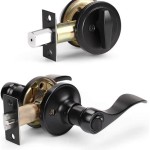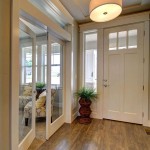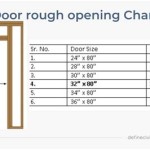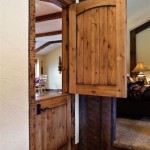Interior Sliding Glass Doors as Room Dividers in Uruguay
The use of interior sliding glass doors as room dividers is gaining popularity in Uruguay. This design trend addresses the growing need for flexible living spaces that can adapt to various functional and lifestyle requirements. Sliding glass doors offer a compelling alternative to traditional walls, providing a sense of openness while simultaneously enabling the creation of distinct zones within a home or office. This article explores the advantages, considerations, and applications of interior sliding glass doors as room dividers in the Uruguayan context, focusing on design aesthetics, functionality, and cost-effectiveness.
In Uruguay, where apartments and houses are often characterized by compact floor plans, maximizing spatial efficiency is paramount. Interior sliding glass doors provide a versatile solution for creating adaptable environments. They allow for the seamless transition between open-plan living and private, enclosed spaces. This is particularly beneficial in multi-purpose rooms, where different activities may require varying degrees of privacy and soundproofing. For example, a living room can be quickly transformed into a home office or a guest bedroom by simply closing the sliding glass doors. The ability to reconfigure a space without the need for permanent structural alterations makes sliding glass doors a valuable asset for homeowners and renters alike.
The aesthetic appeal of sliding glass doors is another significant factor driving their adoption in Uruguay. These doors contribute to a modern and sophisticated interior design. The transparency of the glass allows natural light to permeate the entire space, creating a brighter and more inviting atmosphere. This is particularly relevant in Uruguay's urban centers where access to ample sunlight may be limited. Furthermore, the sleek and minimalist design of sliding glass doors complements a wide range of architectural styles, from traditional to contemporary. The availability of various frame finishes, glass options, and hardware choices allows for customization to match the specific design preferences of the homeowner or the overall aesthetic of the building.
From a practical standpoint, interior sliding glass doors are relatively easy to install and maintain. Compared to building a permanent wall, the installation process is less disruptive and can be completed in a shorter timeframe. The doors are typically hung on a track system, ensuring smooth and quiet operation. Regular cleaning of the glass surface is generally sufficient to maintain its clarity and appearance. The durability of the materials used in the construction of sliding glass doors, such as tempered glass and aluminum frames, ensures long-term performance and resistance to wear and tear. This makes them a cost-effective investment in the long run, as they require minimal maintenance and replacement.
The energy efficiency of interior sliding glass doors is also a consideration for homeowners in Uruguay. While glass is not inherently a great insulator, modern sliding glass doors incorporate features such as double-pane glass and thermal breaks in the frames to minimize heat transfer. This helps to maintain a comfortable indoor temperature and reduce energy consumption for heating and cooling. In Uruguay's climate, which experiences both hot summers and mild winters, this can translate into significant savings on utility bills. The use of low-emissivity (Low-E) coatings on the glass can further enhance its energy performance by reflecting infrared radiation and reducing solar heat gain.
Space Optimization and Flexibility
The primary advantage of using interior sliding glass doors as room dividers lies in their ability to optimize space utilization and enhance flexibility. They offer a dynamic solution for creating adaptable living environments. Traditional walls, while providing privacy and separation, permanently divide a space and limit its potential uses. Sliding glass doors, on the other hand, allow for the creation of temporary partitions that can be easily opened or closed as needed.
In apartments and smaller homes, sliding glass doors can be used to divide the living room from the dining area, creating separate spaces for entertaining and dining. When not in use, the doors can be opened to create a large, open-plan living area. Similarly, sliding glass doors can be used to separate a bedroom from a home office, providing a quiet and private workspace while still maintaining a connection to the rest of the home. This is especially useful in apartments in cities like Montevideo, where many residents work from home.
The flexibility offered by sliding glass doors extends beyond residential applications. In commercial spaces, such as offices and retail establishments, they can be used to create flexible conference rooms, meeting areas, or private consultation spaces. The ability to quickly reconfigure the layout of a commercial space allows businesses to adapt to changing needs and optimize their use of space. For example, a large open-plan office can be divided into smaller team rooms using sliding glass doors, providing employees with a more focused and collaborative work environment.
Sliding glass doors also offer a practical solution for separating different functional areas within a single room. In a studio apartment, for example, a sliding glass door can be used to create a distinct sleeping area, providing a sense of privacy and separation from the living area. This can significantly improve the functionality and livability of a small space. The ability to delineate functional zones without sacrificing natural light or the feeling of spaciousness is a key advantage of using sliding glass doors as room dividers.
Furthermore, the ability to customize the size and configuration of sliding glass doors allows for a high degree of design flexibility. They can be designed to fit any size opening, from small doorways to large expanses of wall. Multiple sliding panels can be used to create a continuous wall of glass, providing a seamless transition between indoor and outdoor spaces. This is particularly appealing in Uruguay, where outdoor living is a popular lifestyle choice. The use of sliding glass doors to connect indoor and outdoor spaces can enhance the sense of openness and create a more harmonious living environment.
Aesthetic Considerations and Design Options
The aesthetic appeal of interior sliding glass doors is a key factor in their growing popularity in Uruguay. They offer a modern and sophisticated alternative to traditional walls, enhancing the overall design of a space. The transparency of the glass allows natural light to flow freely throughout the room, creating a brighter and more inviting atmosphere. This is particularly beneficial in areas with limited natural light, such as hallways or interior rooms.
The sleek and minimalist design of sliding glass doors complements a wide range of architectural styles, from traditional to contemporary. The clean lines and uncluttered appearance of the doors contribute to a sense of spaciousness and openness. They can be incorporated into any design scheme, from minimalist and modern to rustic and traditional. The versatility of sliding glass doors makes them a popular choice for both residential and commercial applications.
A wide range of design options are available for interior sliding glass doors, allowing for customization to match specific aesthetic preferences. The frames can be made from a variety of materials, including aluminum, wood, and steel. Aluminum frames are lightweight and durable, offering a sleek and modern look. Wood frames add a touch of warmth and elegance, complementing traditional design styles. Steel frames provide a strong and industrial aesthetic, suitable for contemporary spaces.
The glass itself can also be customized to achieve different levels of privacy and light transmission. Clear glass allows for maximum light penetration and a seamless connection between spaces. Frosted glass provides a greater degree of privacy while still allowing light to pass through. Tinted glass can reduce glare and solar heat gain, enhancing energy efficiency. Decorative glass, with patterns or textures, can add a unique and artistic touch to the interior design.
The hardware used for sliding glass doors can also contribute to their overall aesthetic appeal. A variety of handle styles and finishes are available, allowing for customization to match the frames and the overall design scheme. Hidden track systems create a seamless and minimalist look, while exposed track systems can add an industrial or modern touch. The choice of hardware can significantly impact the overall appearance of the sliding glass doors, enhancing their aesthetic appeal and contributing to the overall design of the space.
Furthermore, the use of different types of glass, such as laminated or tempered glass, can enhance the safety and security of sliding glass doors. Laminated glass consists of two or more layers of glass bonded together with a plastic interlayer. This type of glass is highly resistant to breakage and offers increased security. Tempered glass is heat-treated to increase its strength and shatter resistance. If broken, it crumbles into small, relatively harmless pieces, reducing the risk of injury.
Installation, Maintenance, and Cost Considerations
The installation of interior sliding glass doors is a relatively straightforward process that can be completed by a qualified contractor. Compared to building a permanent wall, the installation is less disruptive and can be completed in a shorter timeframe. The doors are typically hung on a track system, which is mounted to the ceiling or wall. The track system ensures smooth and quiet operation of the doors. Proper installation is crucial to ensure the doors function correctly and safely.
The maintenance of interior sliding glass doors is minimal. Regular cleaning of the glass surface is generally sufficient to maintain its clarity and appearance. A mild soap and water solution can be used to remove dirt and smudges. It is important to avoid using abrasive cleaners, which can scratch the glass surface. The track system should be cleaned periodically to remove dust and debris, ensuring smooth operation of the doors.
The cost of interior sliding glass doors varies depending on the size, material, and features of the doors. Aluminum-framed doors are generally less expensive than wood-framed or steel-framed doors. The type of glass used also affects the cost. Clear glass is the least expensive option, while decorative or specialty glass can be more costly. The complexity of the installation and the number of sliding panels also contribute to the overall cost.
While the initial cost of installing sliding glass doors may be higher than building a traditional wall, they offer long-term cost savings. The ability to reconfigure a space without the need for structural alterations saves time and money on future remodeling projects. Their energy efficiency can lead to lower utility bills and the durability of the materials used ensures long-term performance and minimal maintenance costs. Furthermore, the increased value and aesthetic appeal they bring to a property can be viewed as an investment by some owners.
When considering the cost of interior sliding glass doors, it is important to obtain quotes from multiple contractors to compare prices and services. It is also important to choose a contractor with experience in installing sliding glass doors to ensure a proper and safe installation. The quality of the materials and workmanship will significantly impact the long-term performance and durability of the doors.
In conclusion, interior sliding glass doors offer a versatile and aesthetically pleasing solution for creating flexible living spaces in Uruguay. They provide a dynamic way to optimize space utilization, enhance natural light, and create a modern and sophisticated interior design. While the initial cost may be a factor, the long-term benefits of increased flexibility, energy efficiency, and aesthetic appeal make them a worthwhile investment for homeowners and businesses alike. Careful consideration of design options, installation requirements, and maintenance needs will ensure the successful implementation of interior sliding glass doors as room dividers in any Uruguayan space.

Sliding Systems Interior Door Bertolotto

Internal Sliding Door With Frosted Glass Oppolia

Interior Sliding Doors Pocket Lualdi

Sliding Doors

Sliding Droors Manufacturer George Intl

Sliding Systems Interior Door Bertolotto

Sliding Systems Interior Door Bertolotto

Smart Aluspace Internal Sliding Door W2500mm X H2100mm

Partition Walls

Sliding Glass Doors Door Systems Modern Space Saving Designs
Related Posts








